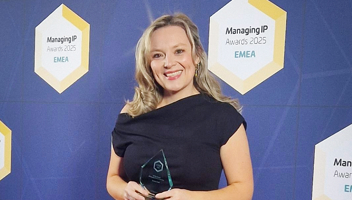In conversation with the litigation funding experts...
We caught up with contacts at three leading funders based in London to discuss when should clients consider deploying it. Read our guide below. Should you have any questions or want further information about any of the issues in this guide, please contact Jody Crockett, head of English Disputes, in the first instance.
Litigation funding in England & Wales: What is it and should clients consider deploying it?
England & Wales embraced disputes funding at an early stage. However, it is really in the last five to ten years that disputes funding has gained prominence - to the extent that there are now more specialist litigation funding firms in England than in any other jurisdiction. But what is it exactly, and when should clients consider deploying it?
But first, the basics...
A third party funder is an independent party that pays some or all of the legal costs and expenses of one of the parties to dispute proceedings (usually, but not always, the claimant). In return, the funder will be paid out of the proceeds should the claim succeed, often as a percentage of the amount recovered or a multiple of the amount it invested. If the claim fails, the funder will not be entitled to payment.
A third party funder can be any independent third party to the claim, but it most commonly now refers to entities or funds which were set up specifically to invest in disputes such as Vannin, Balance Legal Capital and Bench Walk Advisors.
The way funding normally works is that, assuming a funder accepts a claim, the funder (not the client) would pay the client’s legal fees and other expenses as the claim progresses. Sometimes that package can also cover adverse costs risks along the way (for example, if the court were to order a client immediately to pay its adversary the costs associated with a defeat at an interlocutory/interim hearing), or at the end of a trial (the normal rule in England is that costs follow success, so if a client were to lose at trial it may still be ordered to pay its adversary’s legal fees even if the case has been funded).
There are also insurance policies that can be combined with funding to cover this potential costs risk. The result is that the burden of the upfront cost is removed from the client, with the funder covering those and taking its reward from the spoils of the dispute at a later stage.
Clearly, therefore, funding will not suit every dispute - it sits most naturally with commercial dispute resolution (litigation or international arbitration). Each funder will have their own specific requirements, but as a minimum a funder is going to want to see:
- Good prospects of success on the legal arguments: Making that judgement in significant claims (with myriad factors, parties, claims and counterclaims) can be complex. Funders each have their own ways of assessing prospects of success, which methods are increasingly sophisticated. Anecdotally, it has been said that the prospects of success should be measured at 60% or above. Obviously the aim of the funder is to back cases which are a good bit more likely than not to win.
- Larger claims and good proportionality between legal fees and expected return: Funders will each have a minimum level (as regards claim value) under which it will be difficult for them to make a decent return on any investment – certain funders are set up only to target higher or (comparatively) lower value claims. However, at the very least, they will all generally want to make sure that the prospective damages are large enough such that they can recover their outlays and fee, and still leave enough for their client.
- Recoverability: Again, it goes without saying that in addition to succeeding on the legal argument, a funder will want to know that any judgment can actually be enforced. That will involve an upfront analysis on the opponent’s assets: volume, location (i.e. in which jurisdiction) and the ability to enforce against those assets.
Each funder adopts their own approach to assess these factors. The most common approach is a two stage process: (i) an initial evaluation of the factors above (among others) leading – if satisfied – to an initial offer which is often subject to a second more detailed review with a locked in period of exclusivity in the meantime; and (ii) a more detailed analysis, often involving outside counsel. Ultimately any decision to invest often has to be blessed by a funder’s investment committee. The overall process can take weeks or even months.
Third party funding was previously forbidden under the rules on “champerty”, which sought to exclude parties with no legitimate concern in a litigation from exerting an influence over that litigation.
However, changes in law and policy have seen litigation funding become a legal and viable funding form, and its use has increased significantly in recent years. In particular, the so-called “Jackson reforms” from 2010, which aimed to increase access to civil justice and tackle the rising costs of litigation, have led to an upsurge in the use of litigation funding.
Initially, litigation funding was primarily seen as the answer for the impecunious litigant which had a valid claim but lacked the funds to progress it. This was (and remains) a particularly stark issue in England & Wales, where the cost of litigating (and arbitrating) is comparatively high.
However, litigation funding no longer caters solely to those without their own funds: “much of the focus of the litigation finance market today is on the growing corporate utilization of funding by large, well-resourced entities. These entities may be looking for ways to manage risk, to reduce legal budgets, take the cost of pursuing arbitration off-balance sheet, or to pursue other business priorities instead of allocating resources to financing an arbitration matter. Put simply, funding is not only for those that are impecunious. "The use of funding offers the client the ability to minimize risk, does not have any negative effect on their cash flow, and ensures payment of lawyers."

Jody Crockett
Partner
English Law Disputes
Jody has considerable experience of advising in respect of complex disputes for global and multinational companies across a range of industries.
Related News, Insights & Events

Tech & IP Conference 2025: Evolution or Revolution?
07/05/2025 - Everyman Cinema, St James Quarter, Edinburgh
Our annual Tech & IP Conference will explore how businesses can take advantage of change to evolve, build resilience, and leverage competitive advantage through powerful technologies and innovation.

Six in a row for Burness Paull at prestigious IP legal awards
11/04/2025
Burness Paull has won the award for Scotland IP Disputes Firm of the Year for the sixth year in a row at the Managing IP EMEA Awards 2025.

Burness Paull promotes five lawyers to partner
01/04/2025
Burness Paull has promoted five of its lawyers to partner as the firm prepares for further growth in key areas and continues to invest in developing homegrown talent.




